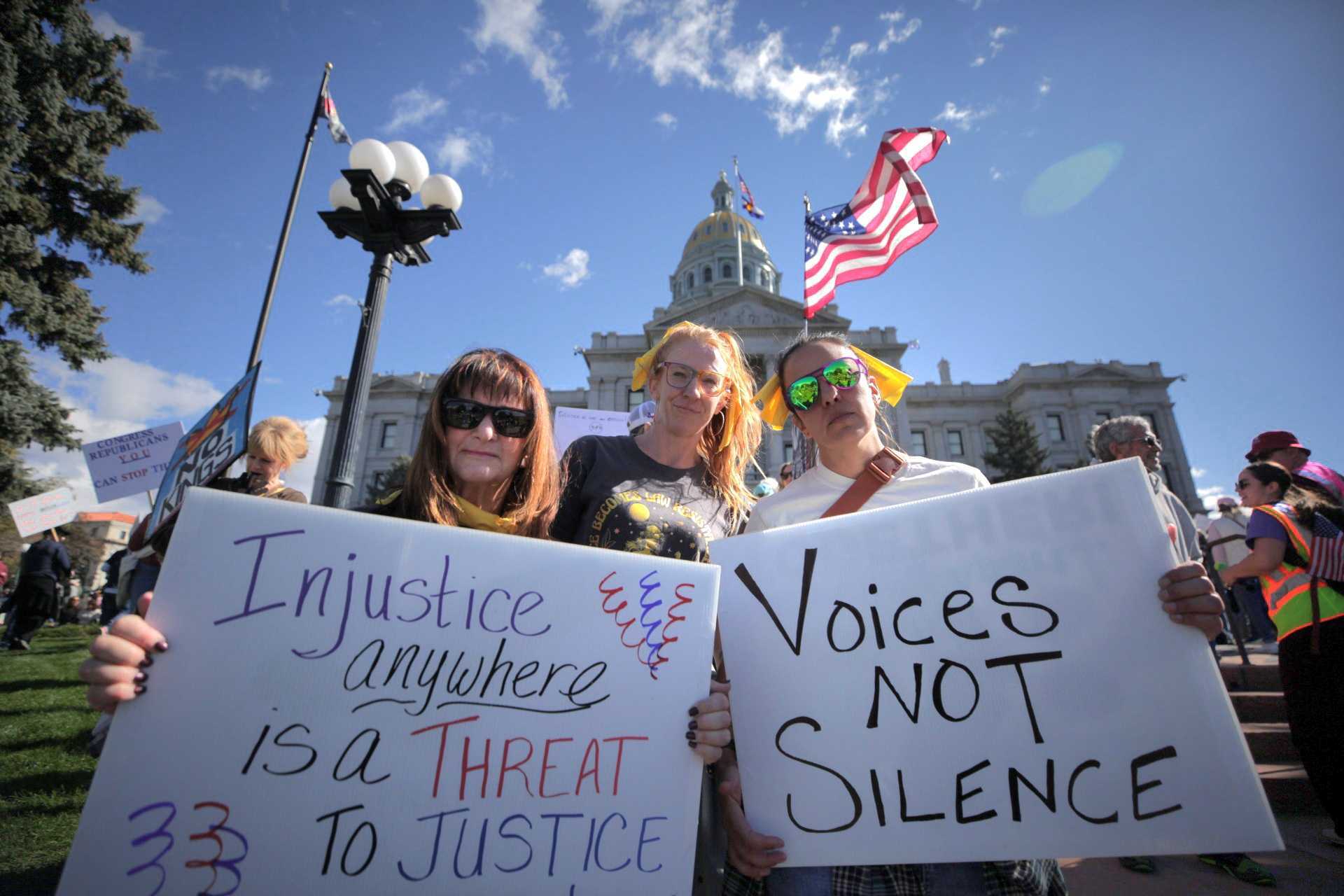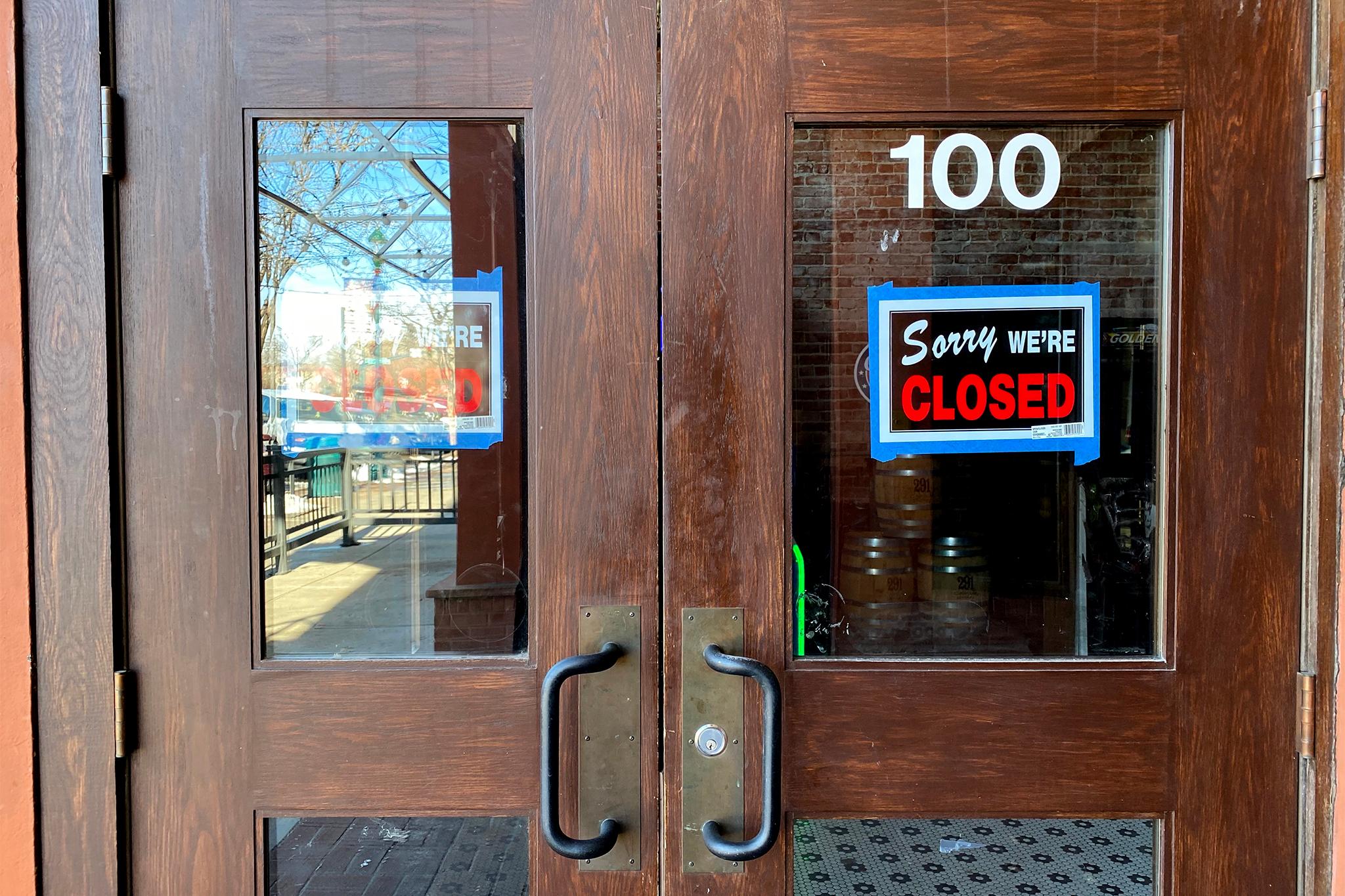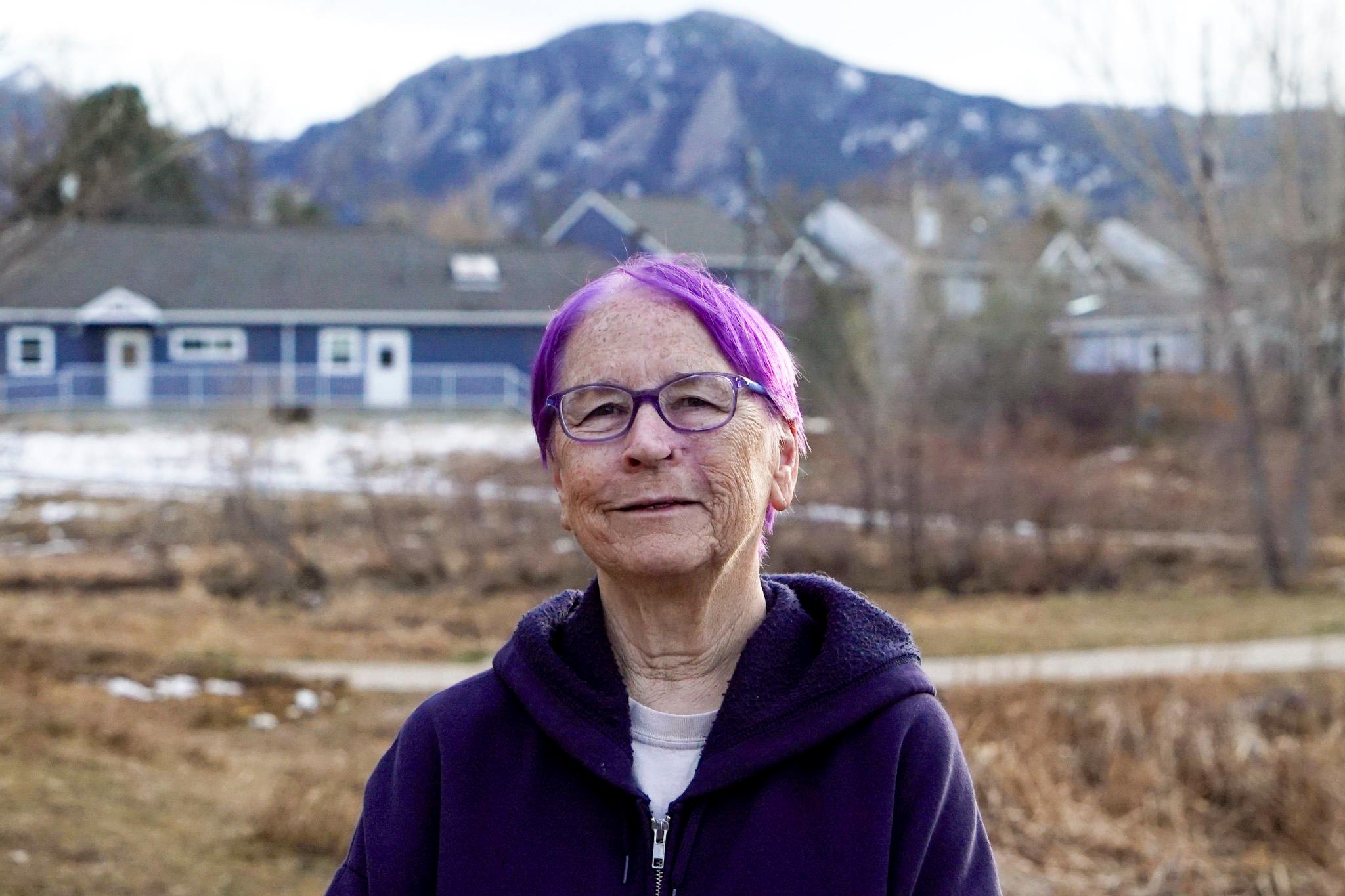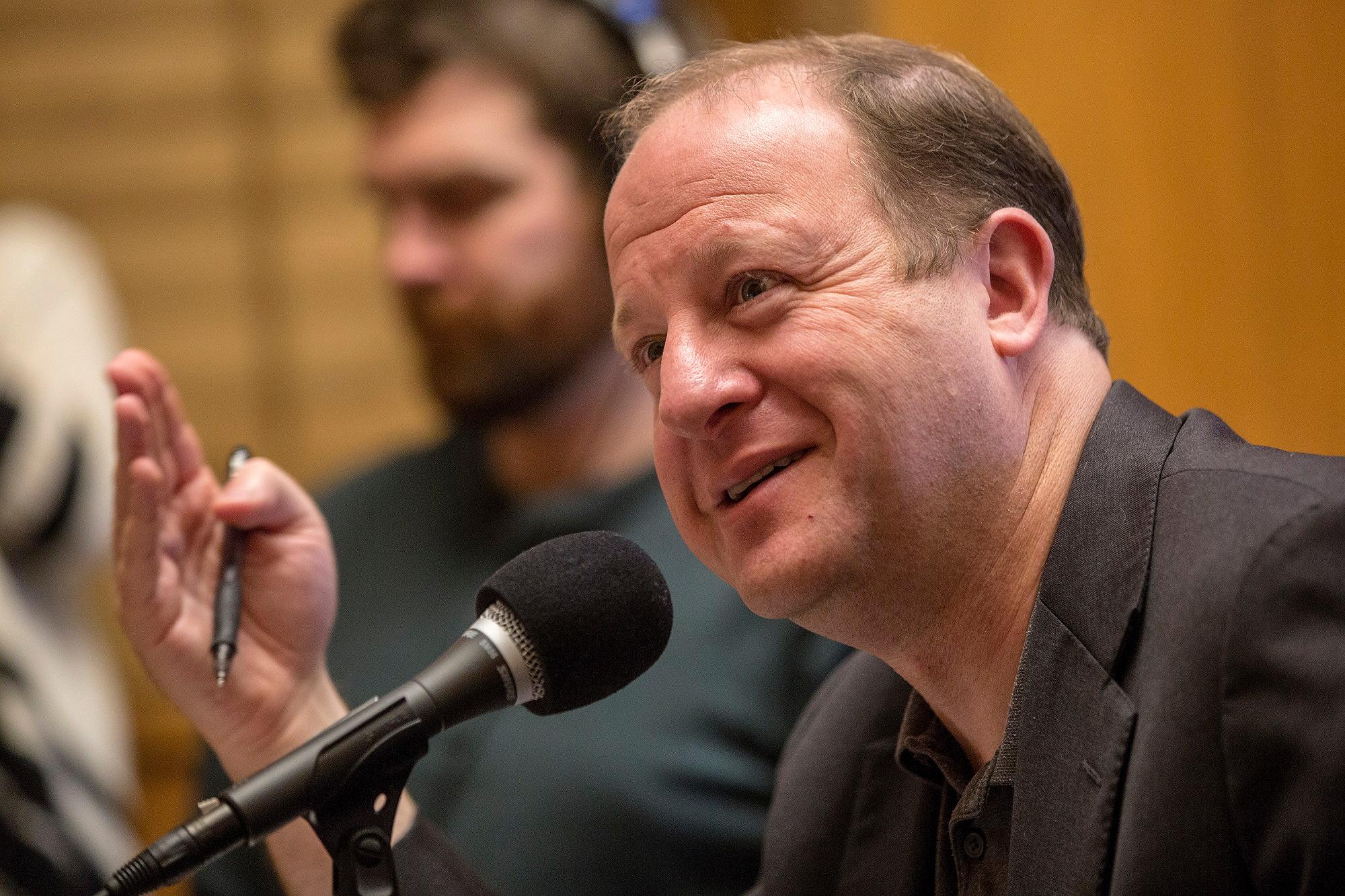
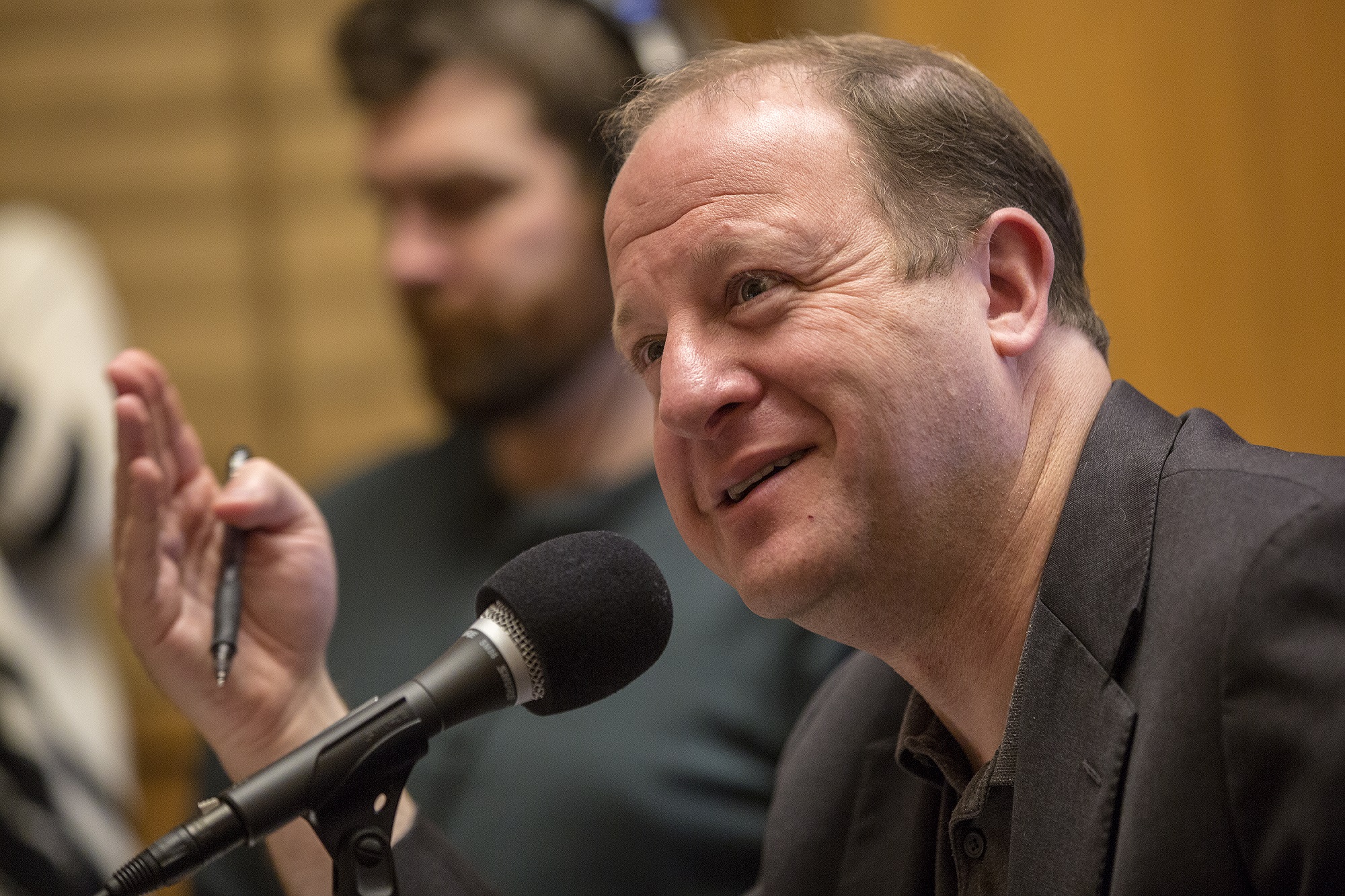
Update 04.29.2019: HB 19-1312 has passed the House. You can follow up on the status of this bill and others as the sessions draws to a close here. Our original story continues below.
--
Gov. Jared Polis told an audience this week that he opposes a major provision in a bill that aims to increase childhood vaccination rates in Colorado, and said he wouldn’t sign the measure into law in its current form.
One of the key requirements of House Bill 19-1312 is that parents would need to submit a form in-person to the state or local health department the first time they seek a non-medical vaccine exemption. Right now forms are submitted directly to a school.
“Of course we don’t support things like requiring anyone to go in person and things like that,” Polis said.
He made the remarks at a health care town hall hosted by Democratic U.S. Congressman Ed Perlmutter in Wheat Ridge. About 250 people attended the event on Wednesday night. CPR confirmed the comments via video and with the Governor’s office.
Asked whether he would sign the vaccine bill? “We’re not fully there yet.” Polis said. “There’s still of course some changes that are going to be made to the bill.”
The bill’s main sponsor, Democratic state Rep. Kyle Mullica of Northglenn, said he doesn’t anticipate any more changes to the measure. Mullica, an emergency room nurse, said he’s already made a lot of compromises. Initially, he wanted to introduce a bill to ban non-medical exemptions altogether for any public school student. At one point he floated the idea that parents would have to turn in an exemption form in-person annually, not just once.
“We need to take this issue seriously and God forbid if a child gets harmed because, there's an outbreak and you know, not only harm but potentially dies. I don't want to look back and ask, ‘Well, could we have done more?’” Mullica said.
The governor’s latest statements are the clearest opposition he has expressed yet to the bill. But it’s not the first time he’s raised concerns about making it harder for parents to exempt their children from vaccinations.
"The minute you try to have the government forcing anybody to do something with their kids, you're going to create distrust of vaccinations, which is already a problem," he told CPR’s Colorado Matters in March. "We want to go the other way."
Indeed, the measure has generated intense opposition from some parents who feel vaccines are harmful and ineffective and that the bill is an overreach and a slippery slope to banning exemptions altogether. The first public hearing on the vaccine measure was so far the longest hearing of the session, lasting until 4:00 a.m.
“We believe each parent and individual should have complete medical freedom to make informed decisions on whether to vaccinate,” writes the Colorado Health Choice Alliance on its website. A number of people from the group attended Perlmutter’s town hall and applauded when Polis said he feels very strongly that “parents should be making that choice.”
Polis does back some parts of the vaccine bill. He supports an annual report to lawmakers on vaccination rates, and is okay with the Health Department overseeing opt-out forms to better track data and make it a “fair” process. He said he personally believes vaccines are effective and his two young children are vaccinated.
The latest figures show that Colorado has the lowest kindergarten vaccination rate for measles-mumps-rubella in the country. Supporters of the vaccine bill say this in-person provision is a critically important part of making the measure effective.
“If we take that part out at this point without replacing it with some other process, it would be pretty similar to the status quo,” said Sean O’Leary, a pediatric infectious disease specialist at Children's Hospital Colorado.
O’Leary believes the requirement to submit an exemption form in person could drive up vaccination rates by making it less convenient for parents to opt their children out. Yet he stresses it’s not so cumbersome as to prevent parents with deeply held beliefs from exempting their children from vaccines.
“A lot of what is going on now, is, what a lot of people call convenience exemptions,” O’Leary said. “So right now in Colorado, if a child was going to school, and they're not up to date on their vaccinations, they can simply sign a form. They may not be against vaccinations. It's just easier to sign a form than to go into the doctor's office.”
Those, “convenience exemptions,” if they occur are something bill supporters hope to reduce.
“The easier it is to get an exemption, the lower the vaccination rates, the higher the rate of exemptions and the higher the likelihood for vaccine-preventable diseases like measles,” O’Leary said.
On Wednesday the Centers for Disease Control reported that the U.S. has hit the highest numbers of measles cases in a year since the disease was declared eliminated in 2000. Federal officials are especially concerned about containing outbreaks that occur in populations with a high number of people who haven’t been vaccinated.
“The longer these outbreaks continue, the greater the chance measles will again get a sustained foothold in the United States,” the CDC report stated. “Stopping these measles outbreaks is a priority for CDC and we are working 24/7 to protect Americans from this contagious disease. Vaccination is the best way to protect against measles.”

